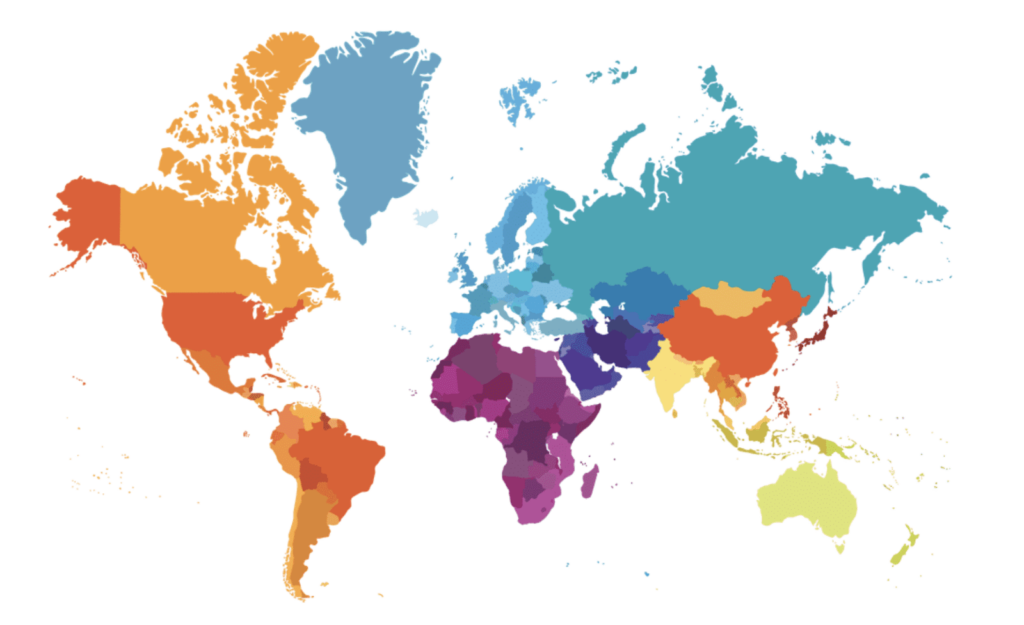Expanding on a series of initiatives to improve diversity in genomic research, 23andMe is launching the Populations Collaborations Program, partnering with researchers working across the globe to genotype people in communities who are underrepresented in genetic research.
Everyone, no matter their ethnicity, should benefit from the scientific insights we gain through research but that hasn’t happened to date because of a lack of diversity in biomedical and genetic research. Underrepresented communities already frequently experience less access to health care and poorer outcomes, and because there are fewer studies among these underrepresented populations those disparities are compounded.
Through the Populations Collaborations program, we will provide financial and scientific support for qualified researchers from academic research institutions in the United States to genotype people in communities across Africa, Asia, and the Americas. This, in turn, will help improve the diversity of our data as well as improve genetics research globally.
“Many populations around the world remain missing from genomic databases,” said Brenna Henn, an Associate Professor in the Department of Anthropology at the University of California, Davis. “In order to increase representation, DNA sampling often requires serious engagement from academic institutions and local communities, but few funding sources support the necessary field work. 23andMe’s Populations Collaborations Program provides an exciting new mechanism to improve our understanding of human history and genetic diversity everywhere around the world, while also helping their customers pinpoint their diverse ancestries.”

The effort follows collaborations 23andMe has already completed or initiated with researchers recruiting participants from places like Honduras and Angola. The most recent completed project is a collaboration with Dr. Nathan Nunn, Frederic E. Abbe Professor of Economics at Harvard, who is studying individuals from the Democratic Republic of the Congo. The genetic data we provide will assist those researchers in their studies, and be used by 23andMe to conduct research for publication and to improve our products and services, such as providing finer resolution for our ancestry reports.
In addition to considering scientific merit, we will evaluate how the research benefits the community being studied. The research process — which requires that researchers obtain consent from participants — will be overseen by an independent review board from the researchers’ institutions, as well as ethics review boards in the countries where the research is conducted. We will give preference to studies that engage local researchers and community members in the project, and we’ll provide additional support for community investments.
Improving diversity in genetic research is a global challenge, but it’s a priority for our company. 23andMe’s mission has always been to help people — all people — access, understand and benefit from the human genome. So over the years, we have endeavored to create programs to reach people in underrepresented communities.
Those efforts go back several years and include 23andMe’s Roots Into the Future project, which was designed to study the genetics of diseases impacting African Americans. We’ve also worked on an NIH-funded project to develop a new way to detect disease-causing genetic variants among ethnically mixed populations. Our African Genetics Project recruited people who emigrated from, or whose parents emigrated from, several specific countries in Sub-Saharan Africa in order to enhance research and enrich our services.
More recently, we began an African-American Sequencing Project, which creates an African American sequencing panel from 23andMe customers who consented to participate in research. The data from this panel will be made available for qualified researchers conducting important health studies through an NIH database. At the end of last year, we also launched the Global Genetics Project, which provides complimentary kits to participants with all four grandparents born in countries underrepresented in our reference data. The project has gained significant momentum, with enrollment hitting over 1,600 participants in the two months since its launch.
We still have a lot of work to do, but we hope that these initiatives will help 23andMe expand its own reference data sets, improve the ability of our scientists to study groups who are currently underrepresented in genetic research, and reveal new insights. We hope our latest Populations Collaborations Program will help qualified researchers to conduct a wide range of research studies to benefit communities where they work and across the globe.



